Matt Deckard
Man of Action
- Messages
- 10,046
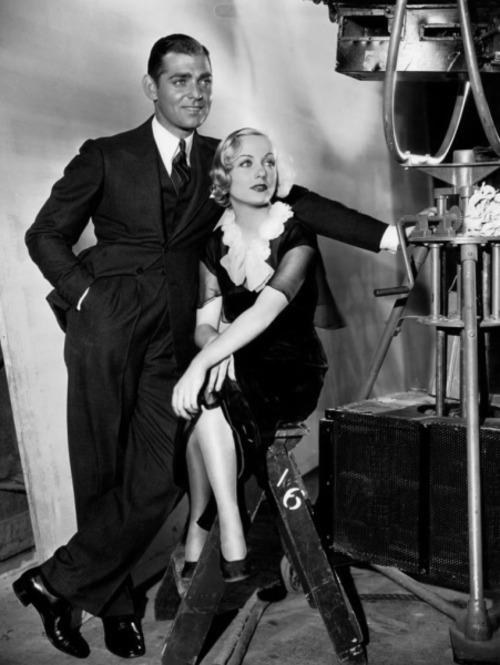
You can see how balance and drape of the masculine look of the 1930s was perfected in the suits Clark Gable wore. In 2013, we live in a time where pants and vests fight for where a man’s waist should be, but in the eyes of Eddie Schmidt in the 1930s (Clark Gable's Tailor), there was no wondering, he knew exactly where and how to outfit a man. You can just see in his creations that anatomy takes precedence, from the break of the shoulder to the nape of the neck, to the point at which his trouser waistbands match up with his lowest vest buttons, you can see the comfort that comes from that proper fit in every movement. For example on Clark Gable, In movies such as It Happened one Night and Dancing Lady, suits that Gable has to wear are not only more extravagant and accentuated in design than their counterparts from a decade earlier (1920s suits that were more about fit than they were altering a man's proportions), but you can see with the right tailoring how Gable is at ease, acting casual even when dressed to the nines in clothes that aren't just about fit, but about drape as well. His suits were in harmony with his persona, and I blame his tailor. We can go into the tales of how Clark Gable Demanded that Eddie make all his wears for all his pictures, even Gone with the wind (there was quite a battle over getting Eddie to work on that one), but I’d rather take a look at why I think Eddie Schmidt was a true master at what he did.
By the way, not buttoning the bottom button on a vest is a decision, not a rule. If the vest cuts away so the button wont reach, then the tailor made the decision for you.
Now to the vests
One striking difference between what you see on Gable and what you see on most modern suits is how short the vest is and how high the trousers are. Of course in the 1920s you'd see low waisted trousers quite often and you'd have longer vests to compensate, but by the 1930s fashion sent mens waistbands higher (it's rumored that The Motion Picture Production Code had come into play and trouser waistbands were getting higher in order to hide the possibility of seeing a navel but I have yet to find reference to navels in the code or its addendums). The vest is very trim and actually gives Clarks chest a bit of lift, a peacock effect. Something that is best achieved with a good cloth of about 16 oz in weight or more. Anything less tends to look too wrinkled and will pull too much at the buttons if tailored so fitted. It also helps that Clark is in prime shape.
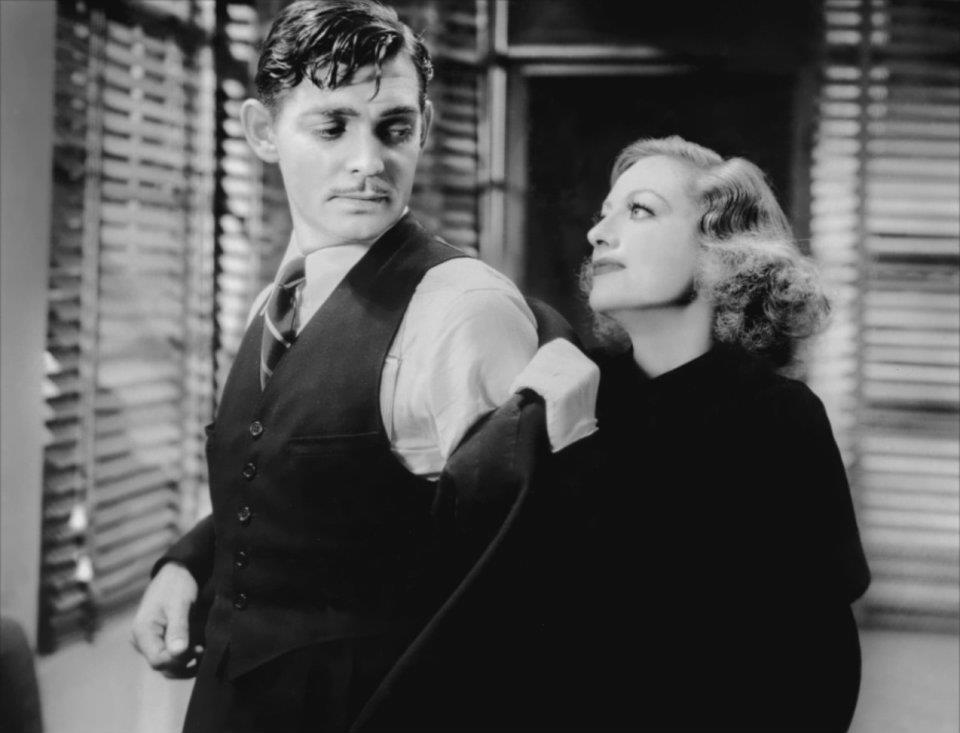
Look at the cut, like a scimitar slash from a skilled hand. When buttoned, the cut of the vest looks beautifully trim, gently curving over his hips and hiding his trouser waistband, it's as though it's molded to his body. Armhole high enough so that the vest holds its place while not cutting into the armpit.
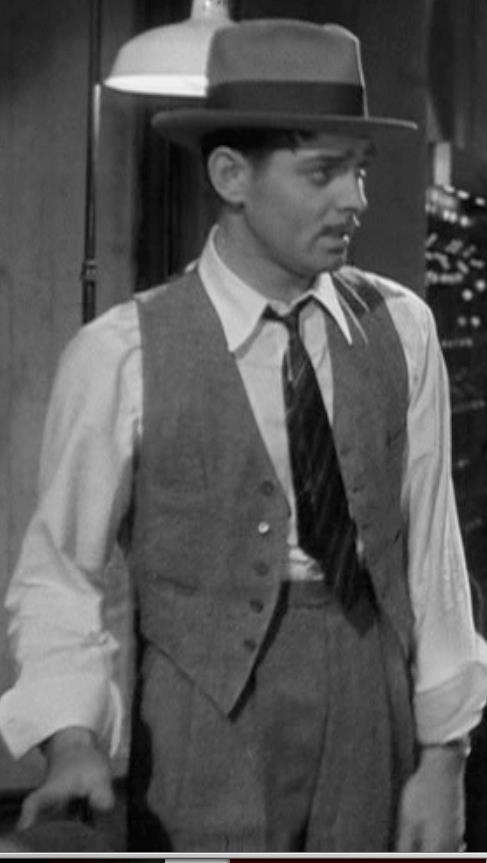
Now to the jackets
The waist is pinched… quite pinched. This trim look was kind of the trademark of the 30s man. The 20s were about fitted trousers and sack coats that carried over from the post frock coat era, and the 30s were about sharp-shouldered bold chested masculinity and draping trousers. The shoulders became broader, the waists became snugger, and the jacket skirts flared away to point out the fulcrum of the body where the trouser waist and the jacket and vest all met at one point.
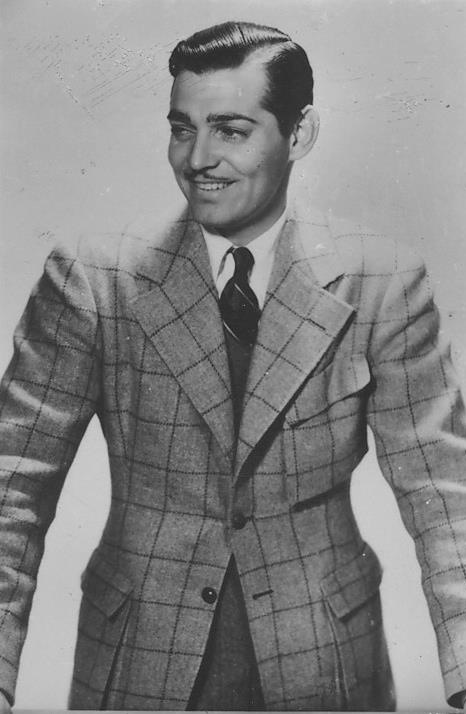
One button to center it all!
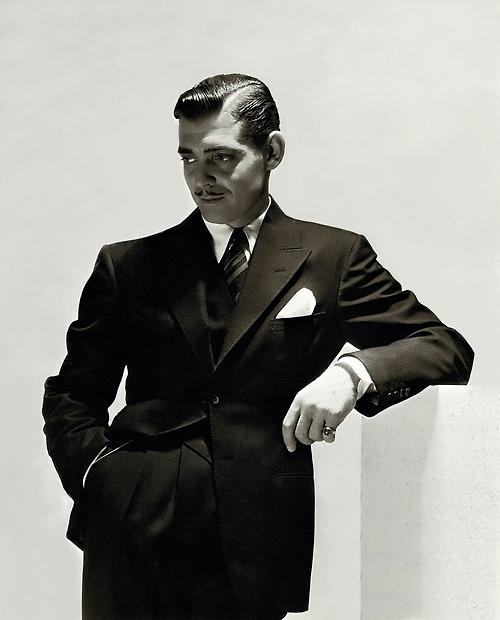
Now to the trousers
While jackets were about controlling the fit and accentuating the waist, Eddie went with an all out drape that fell straight while standing tall, but swathed and rippled while a man was in movement. Quite dramatic. And again... high waisted and meeting with the center point of the jacket. Balanced! The trousers narrowed a little toward the bottom as to not swallow the show, but did not peg to a point where one would look like he was standing on an apple.
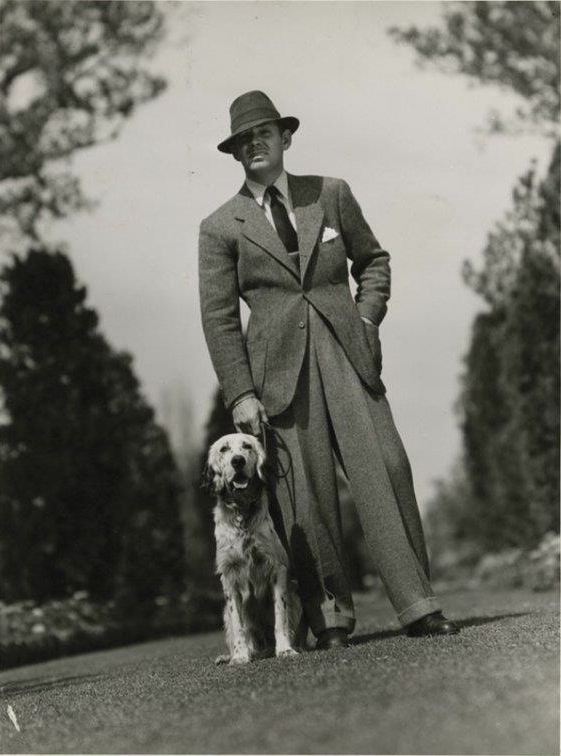
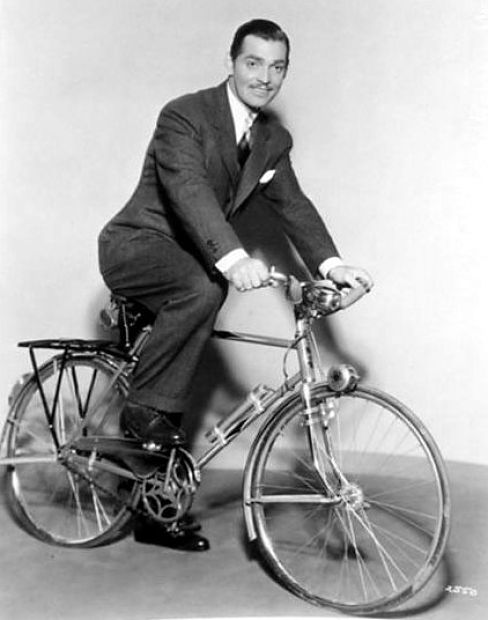
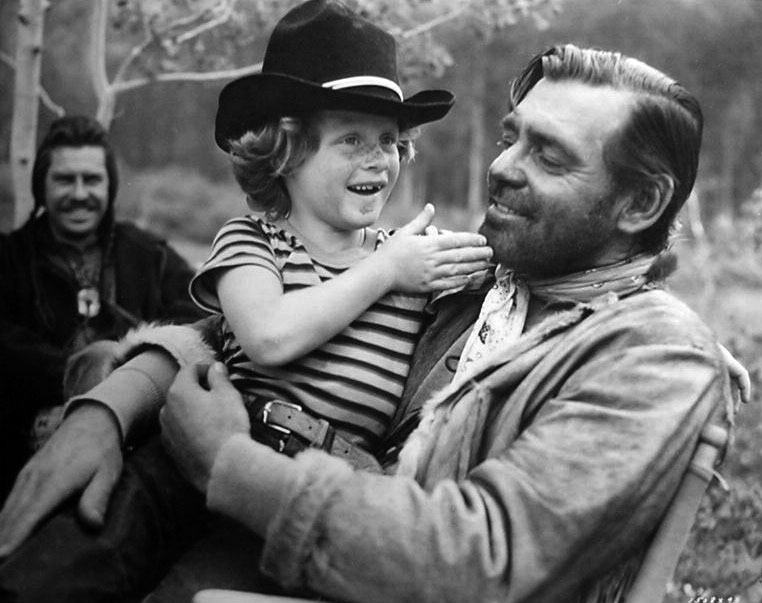
Last edited:


